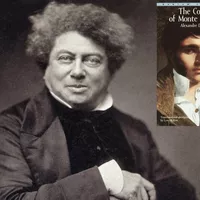Chapter 11. The Corsican Ogre (2)
"So then," he exclaimed, turning pale with anger, "seven conjoined and allied armies overthrew that man. A miracle of heaven replaced me on the throne of my fathers after five-and-twenty years of exile. I have, during those five-and-twenty years, spared no pains to understand the people of France and the interests which were confided to me; and now, when I see the fruition of my wishes almost within reach, the power I hold in my hands bursts, and shatters me to atoms!" "Sire, it is fatality!" murmured the minister, feeling that the pressure of circumstances, however light a thing to destiny, was too much for any human strength to endure.
"What our enemies say of us is then true. We have learnt nothing, forgotten nothing! If I were betrayed as he was, I would console myself; but to be in the midst of persons elevated by myself to places of honor, who ought to watch over me more carefully than over themselves,--for my fortune is theirs--before me they were nothing--after me they will be nothing, and perish miserably from incapacity--ineptitude! Oh, yes, sir, you are right--it is fatality!" The minister quailed before this outburst of sarcasm. M. de Blacas wiped the moisture from his brow. Villefort smiled within himself, for he felt his increased importance.
"To fall," continued King Louis, who at the first glance had sounded the abyss on which the monarchy hung suspended,--"to fall, and learn of that fall by telegraph! Oh, I would rather mount the scaffold of my brother, Louis XVI., than thus descend the staircase at the Tuileries driven away by ridicule. Ridicule, sir--why, you know not its power in France, and yet you ought to know it!" "Sire, sire," murmured the minister, "for pity's"-- "Approach, M. de Villefort," resumed the king, addressing the young man, who, motionless and breathless, was listening to a conversation on which depended the destiny of a kingdom. "Approach, and tell monsieur that it is possible to know beforehand all that he has not known." "Sire, it was really impossible to learn secrets which that man concealed from all the world." "Really impossible! Yes--that is a great word, sir. Unfortunately, there are great words, as there are great men; I have measured them. Really impossible for a minister who has an office, agents, spies, and fifteen hundred thousand francs for secret service money, to know what is going on at sixty leagues from the coast of France! Well, then, see, here is a gentleman who had none of these resources at his disposal--a gentleman, only a simple magistrate, who learned more than you with all your police, and who would have saved my crown, if, like you, he had the power of directing a telegraph." The look of the minister of police was turned with concentrated spite on Villefort, who bent his head in modest triumph.
"I do not mean that for you, Blacas," continued Louis XVIII. ; "for if you have discovered nothing, at least you have had the good sense to persevere in your suspicions. Any other than yourself would have considered the disclosure of M. de Villefort insignificant, or else dictated by venal ambition," These words were an allusion to the sentiments which the minister of police had uttered with so much confidence an hour before. Villefort understood the king's intent. Any other person would, perhaps, have been overcome by such an intoxicating draught of praise; but he feared to make for himself a mortal enemy of the police minister, although he saw that Dandre was irrevocably lost. In fact, the minister, who, in the plenitude of his power, had been unable to unearth Napoleon's secret, might in despair at his own downfall interrogate Dantes and so lay bare the motives of Villefort's plot. Realizing this, Villefort came to the rescue of the crest-fallen minister, instead of aiding to crush him.
"Sire," said Villefort, "the suddenness of this event must prove to your majesty that the issue is in the hands of Providence; what your majesty is pleased to attribute to me as profound perspicacity is simply owing to chance, and I have profited by that chance, like a good and devoted servant--that's all. Do not attribute to me more than I deserve, sire, that your majesty may never have occasion to recall the first opinion you have been pleased to form of me." The minister of police thanked the young man by an eloquent look, and Villefort understood that he had succeeded in his design; that is to say, that without forfeiting the gratitude of the king, he had made a friend of one on whom, in case of necessity, he might rely.
" 'Tis well," resumed the king. "And now, gentlemen," he continued, turning towards M. de Blacas and the minister of police, "I have no further occasion for you, and you may retire; what now remains to do is in the department of the minister of war." "Fortunately, sire," said M. de Blacas, "we can rely on the army; your majesty knows how every report confirms their loyalty and attachment."

